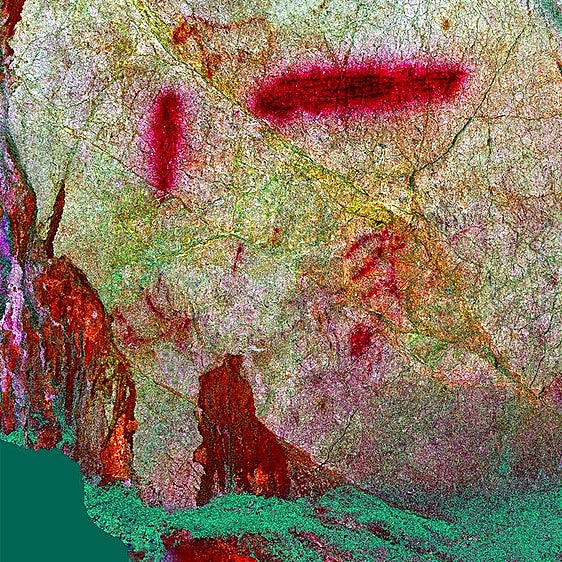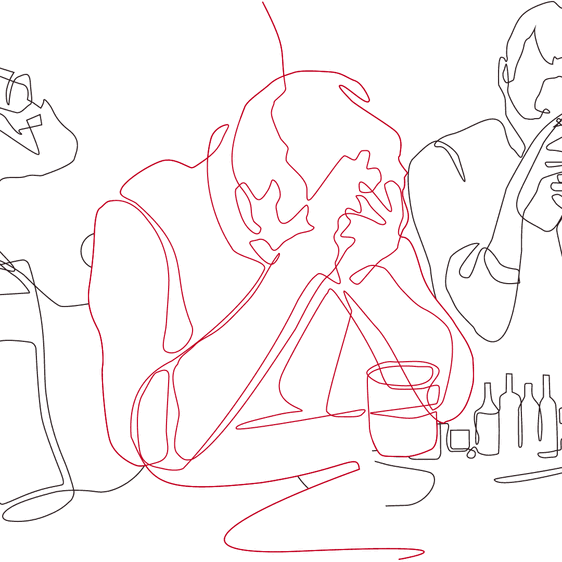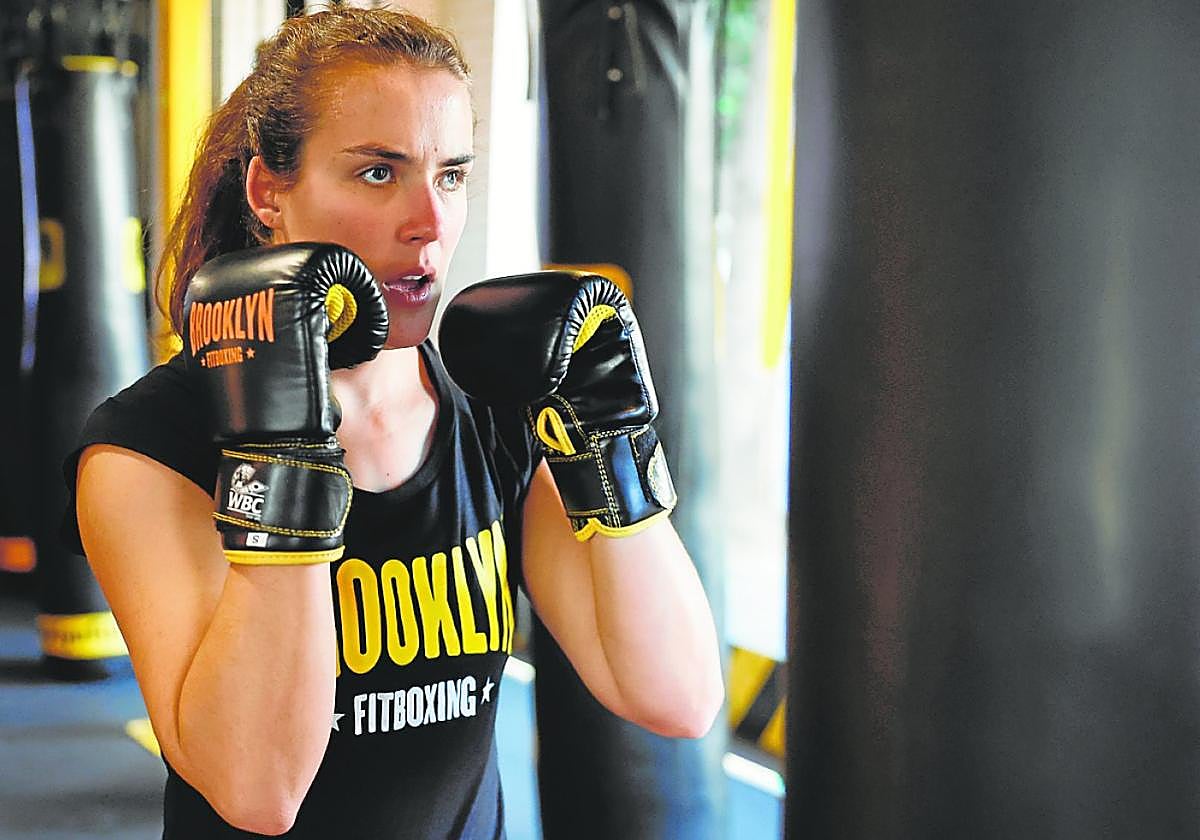'You have to accept the way you are'
A degenerative disease left her blind in her teens, but Lía Beel Quintana has always followed her own star: this former Paralympian and now a recent arrival to Malaga - an "accessible, but not easy" city - wants to enjoy other sports and teach Braille to adults
Cristina Vallejo
Malaga
Friday, 8 March 2024, 12:06
"Taking control of your life means accepting you have a problem - a disability - and then living a normal life, being independent and happy." This definitive statement should be patented by Lía Beel Quintana, a Paralympian who has recently retired from professional sports and who is a Malaga resident since last summer. Her retinitis pigmentosa, the degenerative disease she was diagnosed with at the age of three and which has now left her blind, does not stop her.
"There have been hard times. I had to come to terms with it as a teenager, which was not the easiest time, but from that moment on I assumed that my life was going to be like this and I decided that I was going to do what I wanted, that I was not going to stay chained down by this. From then on, no barrier has stopped me doing anything," she says. Apart from that tough time in her teens, she has suffered a further, severe loss of vision in the last three or four years, but she has not had to go through a new cycle of acceptance - the job has already been done.
She shows an enviable level of maturity for a 28-year-old: "I lead a normal life, I don't think of myself as being blind, I take my guide dog and walk out of the house," she says. Still, sometimes she encounters problems, like a few days ago when it was pouring down in Malaga and the traffic lights were out, leaving her stranded for what seemed an eternity until some girls helped her across the street. "That makes you feel awful, but it's to be expected," she says. "In everyday life your problem isn't one of not seeing, rather whether you can adapt."
We met up when she was practising FitBoxing in a gym in the El Perchel area of Malaga. She has left track athletics, the sport she started as a hobby and later took up professionally. She retired after coming ninth in the last World Championships held in July in Paris because, looking at her previous personal bests, she felt that she was now tired, that training no longer made her happy and she did not want to feel obliged to continue.
"I'm not afraid of change," she states. But sport continues to be her thing and she wants to continue overcoming challenges, be that with this new discipline of FitBoxing or Brazilian jiu-jitsu, a martial art where she is making seriously good progress.
She has been at the top of her game for most of her professional running career. Born in Australia, she then grew up in Burgos, moving to Madrid for her studies. As a pro athlete she has participated in nearly all the top-level competitions except for the 2021 Tokyo Paralympics due to injury. In her second year as a professional she took part in her first ever World and European Under-23 championships, where she won bronze and gold medals respectively.
Constitutional change
SUR met up with Lía in the same week that MPs were assembled in parliament to approve a change in the text of the Spanish Constitution, replacing the term 'disminuido' (handicapped) in the document with the phrase 'persona con discapacidad' (person with a disability). Lía appreciates that this is a step forward but demands that words, while important, should turn into real action, to policies that support people with disabilities.
She highlights how attitudes and behaviour in wider society must also change so that our interactions with others, including those with a disability, become second nature. She feels that sometimes we don't know how to treat people with diverse abilities.
"There are many people with a disability and everyone knows what disability means - it is pretty obvious. Therefore, if anyone comes across a blind person who is a bit lost, all you have to do is ask: 'Excuse me, can I help you?'
"The same thing happens with this example: naturally I still use the verbs 'see' or 'read', it's our everyday vocabulary. To talk to a person with a disability you don't have to change words. You just have to be more natural about it. Most of us have totally accepted our disability, we know what's going on and we won't mind if someone asks us anything," she explains. In fact, because of her curiosity and her profession - she studied Sports Physiotherapy - she tends to ask a lot of questions: "What happened to you, what have you done to yourself? In the end, behind every person there are always life stories that bring something to yours".
Earning a living from sport
Lía's working life is also proof that it is very difficult to make a living from any sporting activity. She has always earned her living through her job, not through sport. Paradoxically, even as a professional athlete, many is the time she has had to limit her sport to hobby status, even though she won medals. Thus, depending on the circumstances, she has had either to reduce working hours to be able to train more, or vice versa, but always taking away time from her personal life. For this reason, she demands more private sponsorship and more public support for athletes. Those in the top four at competition level can probably live well, but the next four cannot, and yet they are also in the rankings, she argues.
As a newcomer to Malaga, she carried out her own survey of the city's level of accessibility for people with disabilities. Her summary: "accessible, but not easy".
"The metro and traffic lights crossings are easy to use, in general it is a very accessible city, but it is not an easy city to navigate in that it has many crossroads, wide streets, tiny streets, huge roundabouts. When you first arrive you have to learn the routes, and I don't think it's an easy city". Is that in comparison with Burgos and Madrid? "In Madrid you can go by metro, and it's very straightforward". As for Toledo, especially the old town, she considers that city as very complicated for a blind person.
Lía doesn't stop: she gets up at six in the morning and goes to bed after midnight. She has moved to yet another city, she's teaching Braille, she throws punches when FitBoxing, she wants to get ahead in Brazilian jiu-jitsu, she is also learning to play the guitar, she really likes reading and she's a film buff. Her only break is at mealtimes, the time that she shares with her husband, who was her sighted running guide. She has a very clear vision of what disability is, how to handle it, and a good feel for how urban planning can be made simpler for society as a whole.


